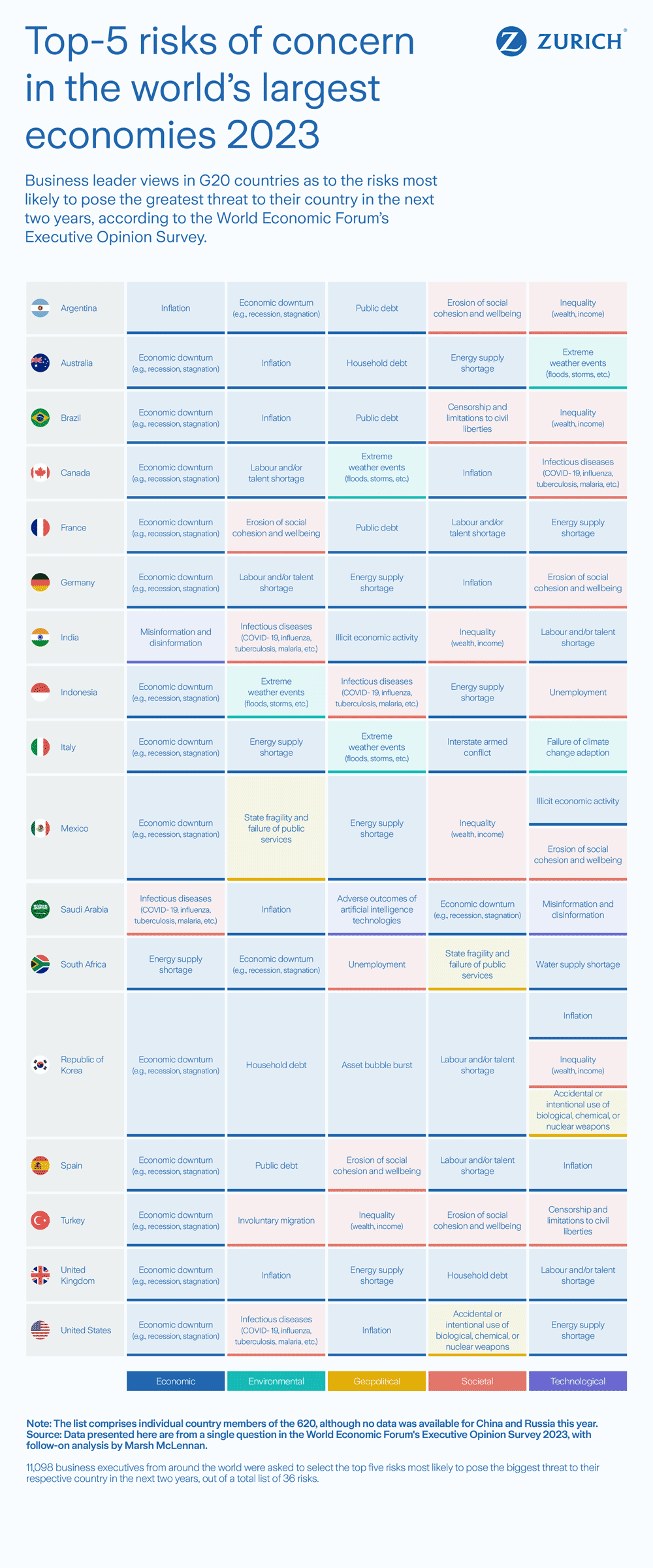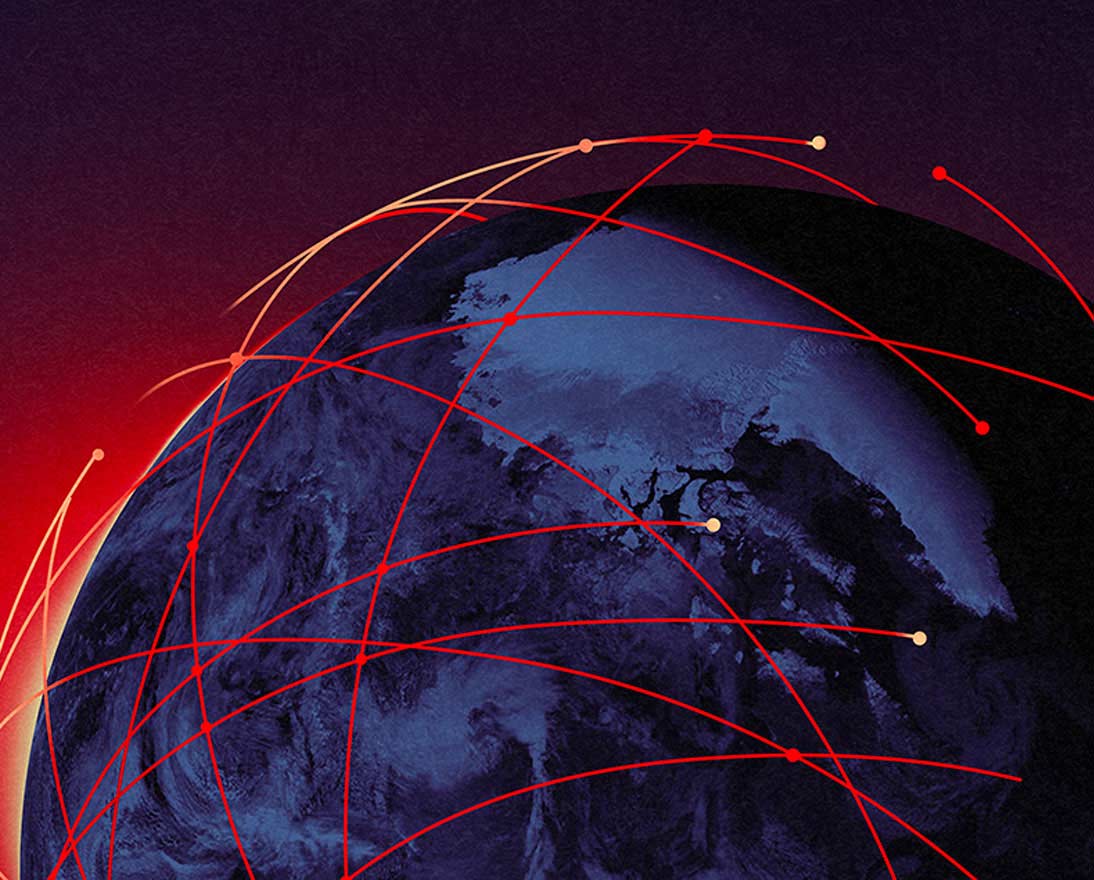What’s keeping G20 business leaders awake at night?
Global risksArticleNovember 14, 20233 min read
Amid a backdrop of slowing growth within the G20 nations, economic risks are occupying the minds of business leaders in these countries, according to the World Economic Forum’s Executive Opinion Survey.
This survey gathers insights from over 11,000 respondents across 110 economies to capture perceptions of risk from businesses around the world. It shows that financial pressures, energy shortages and a dearth of talented workers are keeping G20 leaders up at night.
Alongside the global economic downturn, risks related to the labor pipeline are top of mind for G20 businesses. A task force of Ministers of Labor and Employment for the G20 met in India in July 2023 to reflect upon the ongoing impact of the pandemic, debt, the rising cost of living and geopolitical crises on labor markets, recognizing that these factors are underscored by the long-term structural challenges of climate change, an aging workforce and the digital transition.
Even as renewables are adopted at an exponential rate across the G20 nations, concerns about energy supply shortages feature highly on G20 leaders’ worry lists at number four. Threats to social cohesion and wellbeing round off the top spots at number five.
It’s notable that, despite the summer of 2023 being the hottest on record, environmental risks were far from major priorities. Neither extreme weather, failure of climate change mitigation nor biodiversity loss made it into the top five risks for G20 business leaders, even though extreme weather events struck every continent in 2023 and the costs associated with them have increased by nearly 77 percent in the past five decades.
The risk of adverse outcomes from artificial intelligence loomed large in the minds of G20 executives, who put this risk at number 14. Artificial intelligence represents a complex risk because it is a new and unknown technology. It has the potential to deliver significant benefits across many sectors, but it’s crucial to understand and mitigate the risks it poses to business and society more generally.
G20 leaders were notably less concerned about unemployment than their global peers, ranking risks in this area at 11 while it ranks in the top five in more than 30 other countries. Risks related to pollution (23 versus 17) and cybercrime (19 versus 15) were also ranked notably lower in the G20 than the global average.
Economic downturn, inflation, labor shortages and energy-supply issues continue to dominate the risk landscape in G20 countries. Those risks are closely entwined with social risks. While some factors will always be outside of the control of an individual leader or business, gaining awareness of the complex risk landscape is the first step to building resilience.





